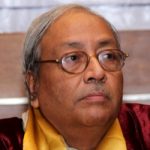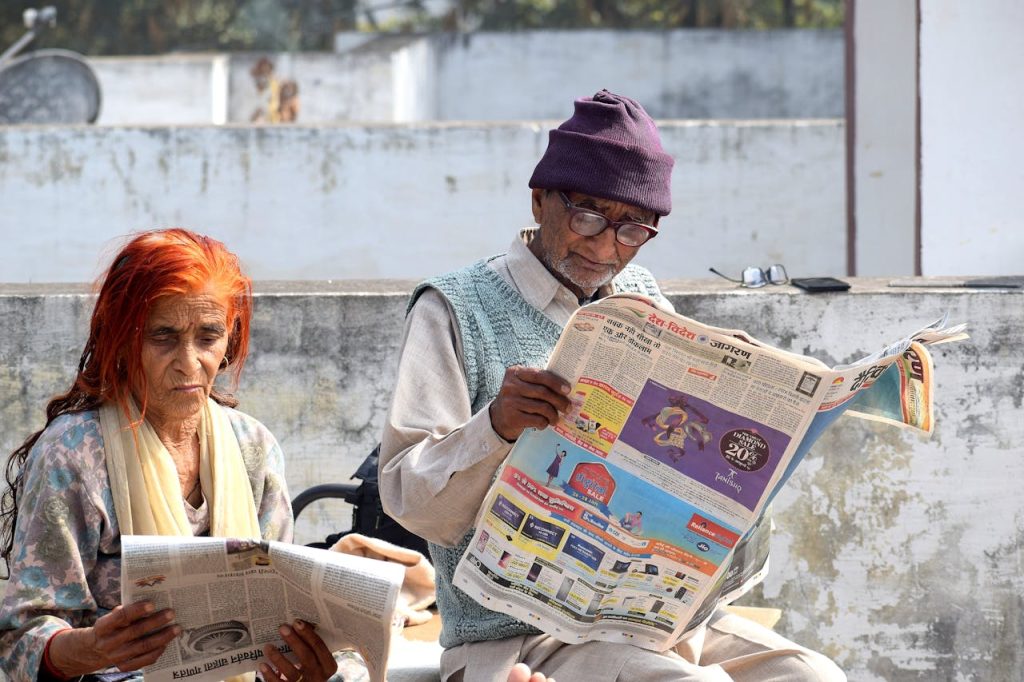The number of elderly people in India is increasing at quite a fast pace. With a population of elderly (above 60 years of age) at around 153 million, it comprises roughly 14 percent of total population in India; this number is expected to increase to 347 million (20 percent of total population) by 2050. And that is a staggering number.
India is a country deeply rooted in family values, where traditionally, children were expected to take care of their aging parents. This societal norm, derived from centuries-old cultural and religious beliefs, often positioned elders at the heart of the family, with younger generations acting as caretakers. However, the contemporary landscape of eldercare is undergoing significant changes. With shifting family dynamics, urbanization, and an increasing elderly population, more and more seniors are finding themselves in a position where they must rely on self-care to navigate the challenges of old age.
This change is not a simple shift in caregiving responsibilities; it represents a broader transformation in how Indian society perceives aging. For many elders today, self-care has become not just an option but a necessity.
One of the primary reasons elders are increasingly responsible for their own care is the transformation of the traditional Indian family structure. The joint family system, where multiple generations lived together under one roof, is gradually giving way to nuclear families. Young adults are moving to cities or even abroad for better job prospects, leaving their elderly parents behind. This physical distance has made it harder for children to provide the same level of day-to-day care and emotional support that their parents might need.
Moreover, modern life has become busier, with dual-income households and hectic lifestyles reducing the time and energy younger generations can dedicate to their aging parents. While the sense of obligation may still exist, the practical challenges of offering consistent support are undeniable.
Need for Self-Reliance
India’s elderly population is growing rapidly. As healthcare improves and life expectancy increases, more people are living longer but also grappling with age-related ailments such as arthritis, diabetes, heart disease, and cognitive decline. The need for care is rising, but the availability of caregivers, whether family or professional, is not keeping pace.
In this scenario, self-reliance among elders becomes not just important but imperative. Many seniors are already taking the initiative by learning how to manage their own healthcare, finances, and emotional well-being. This shift requires a mindset change, where elders must take charge of their own lives, often in ways they may never have imagined in their younger years.
Some of the most important aspects in this regard are given below:
Financial Independence
One of the key areas where elders must focus is financial independence. In India, many seniors do not have a consistent source of income after retirement, and those who do often rely on savings or pensions, which may not be sufficient to cover rising healthcare costs. A significant portion of the elderly population is still dependent on their children for financial support, but this dependency can sometimes lead to stress or a sense of helplessness when that support is delayed or unavailable.
To ensure a secure old age, elders must start planning their finances early. This could include building a retirement corpus, investing in health insurance, and exploring income-generating options such as reverse mortgages or annuities. Staying informed about government schemes designed for senior citizens, such as the Pradhan Mantri Vaya Vandana Yojana (PMVVY) or the Senior Citizens Savings Scheme (SCSS), can also be beneficial in providing financial stability.
Staying Alone
Since the luxury of staying with family members may not be available, the elders must find their own way and place of living. Urban India provides a good number of opportunities for the same. The old age homes or old age societies are one option besides staying alone. If one is staying alone, he / she may look into the possibility of moving into smaller apartment; “reverse mortgage” is one option of having some financial benefits of releasing money out of own home.
Taking Care of Physical Health
For elders to live independently, maintaining physical health is crucial. Regular exercise, a balanced diet, and timely medical check-ups form the foundation of healthy aging. Seniors need to be proactive in managing their health, especially in light of chronic conditions that may arise as they age. Learning to self-administer medications, tracking health metrics, and adopting healthy lifestyle habits can go a long way in ensuring that elders remain physically capable of looking after themselves.
In addition to physical health, access to quality healthcare is essential. While urban areas have better healthcare infrastructure, rural areas often lack specialized medical facilities. Elders living in such regions must be aware of telemedicine options or mobile healthcare units that can offer remote consultations and medical advice.
Nurturing Mental and Emotional Well-Being
Aging is not just about physical decline; it also brings mental and emotional challenges. Loneliness, isolation, and depression are common among seniors, especially those who live alone. Self-care, in this context, involves taking deliberate steps to stay mentally engaged and emotionally connected. This can be achieved through social activities, hobbies, volunteering, or joining senior citizen groups or specific groups like “walking groups” that offer companionship and a sense of community.
Staying mentally active is equally important. Regular cognitive exercises, such as solving puzzles, reading, or learning new skills, can help in keeping the mind sharp and fend off conditions like dementia. For those who struggle with mental health issues, seeking professional counselling or therapy is a step toward maintaining emotional well-being.
Conclusion
The idea of elders taking care of themselves is a relatively new concept in Indian society, but it is rapidly gaining traction. As family structures continue to evolve and the demands of modern life grow, seniors must learn to become more self-reliant in every aspect of their lives.
While this shift may seem daunting, it is also empowering. Elders who take control of their own lives can live with dignity, independence, and a sense of purpose. They are no longer passive recipients of care but active participants in their own well-being. In the end, self-care for elders is not about replacing family support but complementing it, ensuring that they can enjoy a fulfilling life regardless of the changing dynamics around them.
Author

Dr A K Sen Gupta is the Co-Founder and Chief Trustee of My Retired Life Foundation (MRLF). This article has been published in Free Press Journal (FPJ) on 13th Sept 2024, where he is a regular contributor. Dr Sen Gupta was the Director of S.P. Jain Institute of Management & Research, Mumbai, and Director & Mentor at SIES College of Management Studies, Navi Mumbai. He was a World Bank Consultant and instrumental in setting up the National Banking College in Ghana, Africa, and a Professor at the National Institute of Bank Management, Pune.





The onus to take care of one self should be there in each person,especially seniors.Awareness and effort can make advancing years comfortable